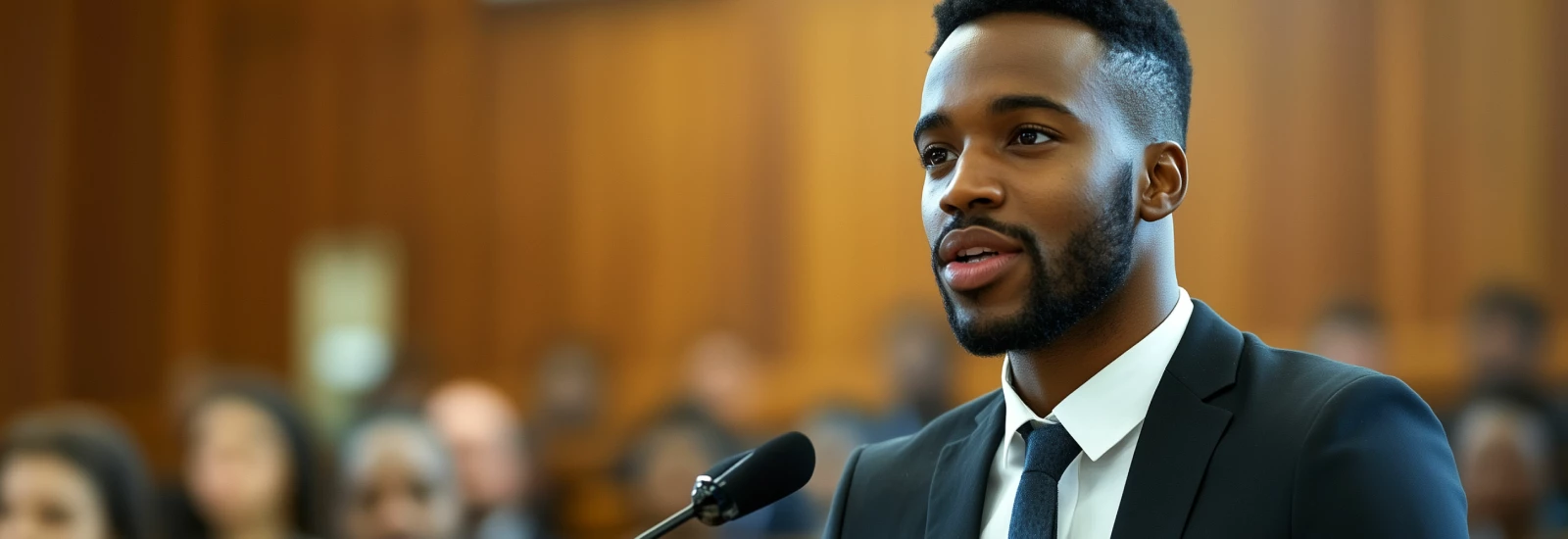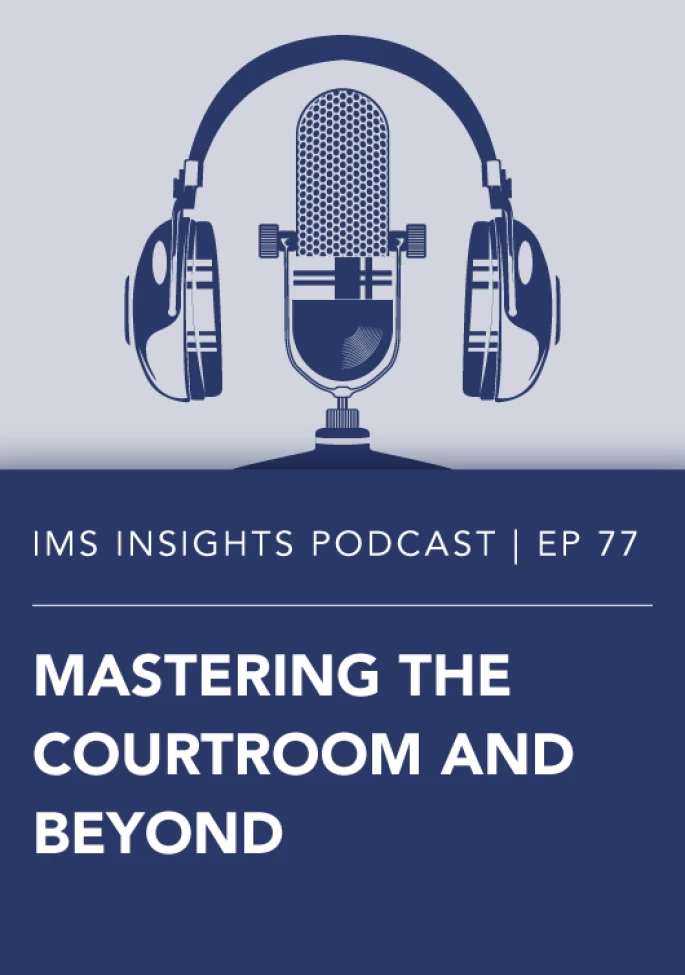In the high-stakes world of litigation, some attorneys focus on winning the case in front of them. Others think bigger—shaping strategy, influencing public policy, and leading far beyond the courtroom. Craig A. Thompson does it all.
As a nationally recognized trial attorney and Partner at Venable LLP, Craig has spent decades guiding juries through some of the most complex, high-pressure cases. But his impact does not end when the court adjourns. He has led major legal organizations, chaired the campaign for Maryland Governor Wes Moore, and now heads the Maryland Stadium Authority. His career is a masterclass in leadership, advocacy, and strategic thinking. IMS Senior Jury Consulting Advisor Chris Dominic recently sat down with Craig for a behind-the-scenes look at what it takes to lead, both inside and outside the courtroom. Their conversation spanned everything from trial structure and juror engagement to career-defining decisions and lessons learned in public service. Whether you are preparing for a complex trial or navigating leadership challenges in your own practice, Craig’s insights are grounded in experience and full of practical wisdom.
The Power of Strategic Thinking
Chris opened the conversation by reflecting on Craig’s reputation for strategy, saying, “You've always perked up when we get deep into the science of communication and framing.” For Craig, courtroom advocacy is not just about legal arguments; it is about narrative structure, juror psychology, and anticipating how information will be processed under stress.
Craig shared that his interest in communication strategy stemmed from a desire to connect authentically with jurors, especially in long trials where focus and emotional endurance are tested. “You can’t assume jurors will remember the first thing you said four weeks ago. You have to build in a rhythm, reinforce key themes, and read the room constantly,” he explained.
Key Takeaways
Succeeding in Long, Complex Jury Trials
Craig emphasized that preparing for a months-long trial is not just about stamina, it is about structure. “You need a roadmap for the jury. It has to feel like a story unfolding in chapters, not a scatter of isolated facts,” he shared.
He also talked about techniques for maintaining juror attention, including:
· Strategic repetition of key themes
· Breaking down technical content into digestible segments
· Visual storytelling to reinforce testimony and evidence
· Building natural stopping points that help jurors mentally bookmark critical issues
How Leadership Beyond the Courtroom Shapes Trial Strategy
Craig’s work in political campaigns and public service has sharpened his communication instincts. “When you’re speaking to the public, clarity is non-negotiable. That skill translates directly to speaking to a jury,” he noted.
His time as campaign chair for Governor Wes Moore taught him to distill complex platforms into compelling messages, and that approach has carried over to opening statements, cross-examinations, and closings. Craig also explained how executive roles, like leading the Maryland Stadium Authority, deepened his appreciation for collaboration and long-term planning. For trial attorneys, these traits are essential in managing expert witnesses, litigation teams, and evolving case theories.
Engaging Jurors Under Pressure
Craig offered a masterclass in courtroom presence, sharing that “It’s not just about what you say, it’s how you make the jury feel seen, heard, and respected.” His top tips included never underestimating body language, because jurors are watching you even before and after court.
He also conveyed the importance of speaking with humility. Even as an experienced trial attorney, Craig avoids over-explaining or appearing dismissive. Furthermore, he treats voir dire as a conversation, not a checklist, in order to create juror buy-in early.
Managing Pressure and Stress in High-Stakes Moments
Both politics and litigation demand resilience. Craig shared how he stays focused and uses preparation as armor: “If you have prepared for every angle, pressure doesn’t rattle you—it sharpens you.” Another component is keeping a clear chain of command; delegating wisely and trusting your team is essential. Finally, Craig explained that he builds in quiet time after each trial day to reflect on what worked and what needs to be recalibrated.
Career Defining Moments
Craig also reflected on early advice—“Listen more than you speak’—that still grounds his approach. Whether working with clients, juries, or colleagues, active listening helps him uncover what matters most to others.
His advice to young lawyers? “Don’t chase titles. Chase opportunities to grow.” Craig encourages emerging trial attorneys to take on challenging cases, seek mentors, and never underestimate the power of preparation.
Elevating Legal Strategy Through Collaboration
Throughout the conversation, Chris and Craig underscored the value of strategic collaboration. “The most successful trial lawyers aren’t just skilled on their own—they know how to pull together the right experts, consultants, and storytellers,” Chris noted.
At IMS Legal Strategies, this holistic approach is at the heart of every client engagement. From strategy consulting and expert witness sourcing to custom presentations and courtroom technology, IMS helps trial teams elevate strategy across every stage of litigation. We are privileged to support respected attorneys like Craig in preserving hard-earned reputations.






